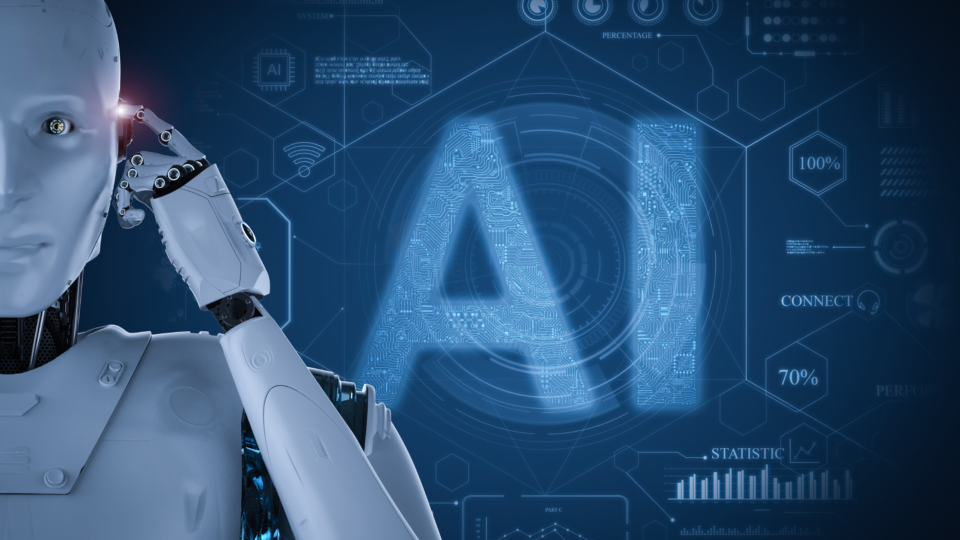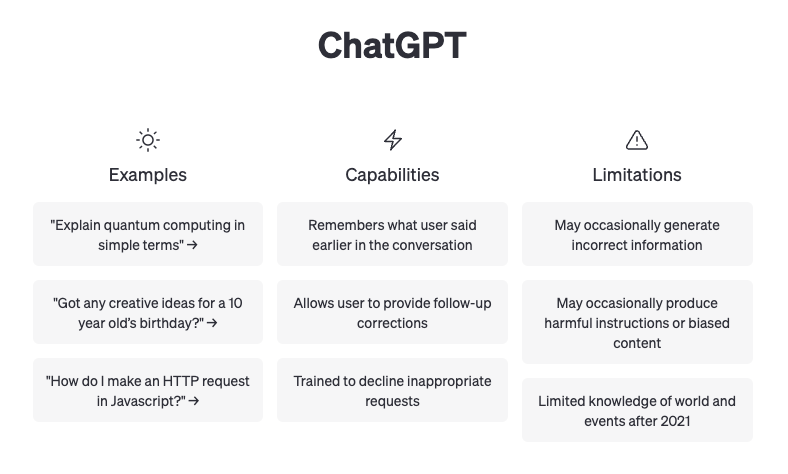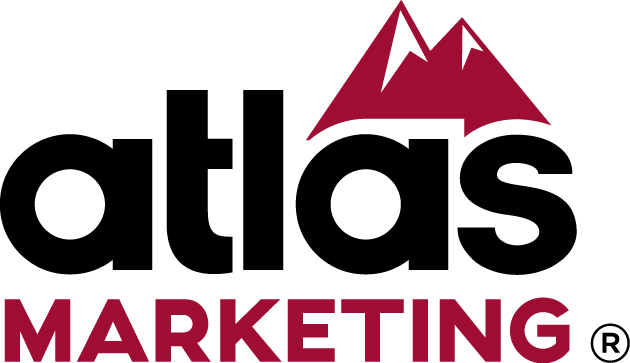ChatGPT and AI in Digital Marketing – What’s the Deal?

You’ve seen it discussed everywhere lately – from trusted nightly news programs to your teenage kids and from folks as high up in the food chain as U.S. Government officials. And even with all the coverage, there are still many questions left unanswered. Is it breaking any rules? Can it be trusted? Is it going to make our jobs obsolete? We’re talking, of course, about ChatGPT and how AI in digital marketing is seemingly taking over.
As Atlas is a digital marketing agency, we always look for the latest and greatest methods to revolutionize our content creation processes and tools. That’s why AI in digital marketing is extra polarizing – not only because it introduces interesting conversations about innovative technology in marketing but because it directly affects how our industry functions and could be expected to function in the future. And with this new, shiny tool touting claims of machine-generated efficiency and effectiveness, it’s tempting to think about relying on such a helpful contribution. What we’ve come to learn through research and our own practice with the tech, however, is that AI in digital marketing carries risks if relied upon too heavily.
What are the major concerns surrounding AI in general?
There are several red flags that are unabashedly waving in the wind when it comes to AI content tools. One of which is a warning to proceed with caution from OpenAI itself, the team who created the current most popular AI content source, ChatGPT. The below guide appears on the OpenAI site when a new prompt is opened:

The most concerning column to focus on is “Limitations” on the far right. In its current iteration, ChatGPT (and other highly sophisticated AI tools) may generate information that sounds correct with seemingly supportive facts and citations but is incorrect or misleading. OpenAI’s chief executive, Sam Altman, has also been quoted as saying, “It’s a mistake to be relying on it for anything important right now,” which should most definitely give anyone pause before using the tech as a one-stop-shop for perfect content. Also hidden among these concerns is the question of biased content. Since all AI information is generated through algorithms and data, it’s possible that the algorithms and programming can be influenced by close-minded or even harmful biases. The output is only as good as the input.
Should there be concerns surrounding AI in digital marketing specifically?
Beyond the technical errors that can occur when using AI programs, another issue AI is battling is a major lack of human touch. In preparation for writing this blog, we utilized ChatGPT to write a 300-word piece about the positives and negatives of AI in digital marketing, just to see what it would spit out. What we got was a very matter-of-fact blog with a standard beginning and end and a sprinkle of content sandwiched in between which quoted a Harvard Business Review article on the worries of accuracy when using AI. And it was fine. Just fine, though. It was technical and dry and unmoving. Yes, it got the job done in a matter of minutes. But that’s not what a marketing agency should strive to do.
The marketing industry exists to marry two crucial elements to propel businesses forward: data and creativity. All in the hopes of creating an emotional response to that which can’t have emotion on its own. AI is not currently programmed to be able to deliver on the need for a unique, human, emotional touch. And even though there are decision makers out there who are all about the black-and-white facts and figures, marketing involves too many components to fully produce on just those alone.
Are there upsides to utilizing AI to generate content?
With all downsides aside, there are positive aspects of AI in digital marketing. After all, great marketing decisions are supported by data and analytics, and AI is nothing if not a collection of behavioral data-influenced output. Because of this, AI-generated pieces can lead to sharable content that is highly relevant and timely to specific audiences, which could lead to an improvement in engagement rates and increased authority in any given subject matter. And that is an incredibly valuable edge.
At Atlas, we’ve seen the best results in utilizing AI for brainstorming sessions as a jumping-off point when we’re feeling creatively zapped, to help optimize content for certain platforms, and to save time on internal communications and non-billable work so we can shift more of our time towards our clients’ needs. It’s most important to note, though, that AI-generated content should never be the final product. Everything created through AI resources should be thoroughly vetted for accuracy, checked for plagiarism violations, and edited for tone. As AI in digital marketing continues to develop, we’ll be sure to adapt our uses of it as well – always keeping an eye out for those pesky red flags getting in the way of all the shiny, new fun.
How can I learn more about AI in digital marketing, the latest trends, and other news?
Atlas Marketing is a digital marketing agency for the construction and manufacturing industries. More information on AI in digital marketing, or details on our digital marketing experience, can be found on our website and through our various newsletters, blogs, and social media platforms. Having two office locations in Pennsylvania, one in Pittsburgh and one in Lititz, we provide traditional advertising and digital marketing services to those within the construction, manufacturing, automotive, industrial, and aerospace industries. Atlas Marketing also provides content creation, crisis communications, public relations, construction marketing, brand development, social media, and proposal writing services. Just last year, Atlas was named one of the top social media agencies in the country by DesignRush. For more on who we are, our team, and other offerings, visit our site or contact us today.
